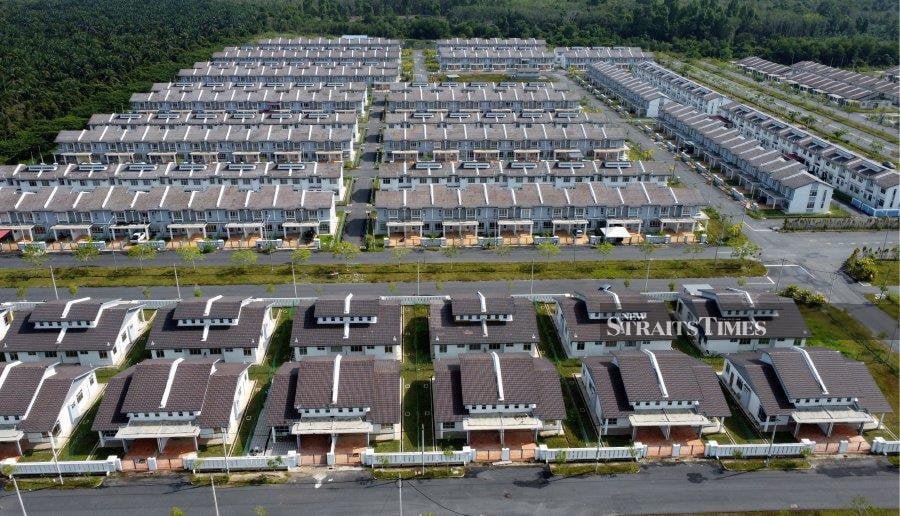KUALA LUMPUR: Bank Negara Malaysia has warned that overly lenient housing loan policies could harm affordability and create instability in the property market.
The central bank told Business Times that loose financing conditions such as extended loan tenures and speculative buying fuelled by easy access to credit, contributed significantly to housing price surges between 2012 and 2014.
During the period, house prices increased at an average of 10.1 per cent annually, far outpacing income growth and making homeownership challenging for many Malaysians.
Simultaneously, household debt levels and speculative activity in the housing market spiked, with many borrowers taking on multiple housing loans.
In response, Bank Negara has introduced measures to curb speculative buying and temper the housing market with key regulations. This included a 70 per cent loan-to-value (LTV) cap for borrowers with more than two outstanding housing loans and a maximum loan tenure of 35 years.
These measures remain in effect and have successfully moderated house price growth to a more sustainable average of 5.3 per cent between 2015 and 2019.
Bank Negara emphasised that while extending loan tenures may reduce monthly repayment amounts and make houses appear more affordable in the short term, it could lead to higher overall financing costs and increase household indebtedness.
Prolonged loan periods also risk further fuelling property price inflation, making housing even less accessible for future generations.
Hence, Bank Negara encourages borrowers to carefully evaluate financing options and choose loan terms that align with their financial capacities.
While financing conditions do influence affordability, the central bank said they are not the sole driver of housing price trends.
Structural factors such as inadequate housing supply, mismatched pricing relative to household incomes and stagnant wage growth play more significant roles.
The central bank pointed to government initiatives aimed at increasing household incomes, improving the housing supply and developing a robust rental market as critical measures to address Malaysia's housing affordability crisis holistically.
Meanwhile, House Buyers Association (HBA) honorary secretary general Datuk Chang Kim Loong said while a 120 per cent loan coverage, for example, might seem helpful in enabling house buyers to secure their dream home, the association does not support the approach.
He advised prospective buyers to exercise caution and conduct thorough due diligence before proceeding with such arrangements.
Chang emphasised that there is no such thing as a "free lunch," warning that buyers will ultimately pay significantly more over the loan's tenure.
"HBA would like to remind all house buyers that the cost to buy a house is not just the 10 per cent downpayment but house buyers should prepare another 10 per cent to cover legal fees, stamp duty and other ancillary costs.
"As for renovation and electrical applications, spend within your budget and if you need to take a loan, it means that you are spending above and beyond your budget. Do not forget that if you borrow more you pay back more over the extended period," he said when contacted.
Chang said this does not solve the affordability issue and only encourages house buyers to take an additional loan which will add on to their financial burden in the long run.
"The key to solving housing affordability is to reduce the house prices and not to encourage additional loans or extend tenure of loans. If one doesn't even have the initial down payment of 10 per cent, consider renting.
"Renting has lesser risk compared to signing a voluminous housing loan contract and is bound by the rest of their adult years."
Chang added that offering higher loans will lead to higher house prices as house buyers who could not afford the loans to buy such houses suddenly find that they "creatively" are now able to do so.
"However, there is a difference between being able to qualify for a housing loan and being able to continue paying the loan installments and maintain a minimum quality of living.
"House buyers, who take up say a 120 per cent housing loan, will pay higher loan installments compared to someone who takes a 90 per cent housing loan. The buyer who took up the 120 per cent housing loan could end up with little or no savings after paying the loan installments and other living costs."
He added that individuals who opt for such schemes often lack an understanding of the value of money and are unlikely to be responsible borrowers.
Chang said these arrangements may seem like a "no-cost entry" and are comparable to "cash-back guarantees," which are simply marketing gimmicks.
"The problem of housing affordability is due to house prices rising too rapidly in comparison to increase in salaries and HBA has written extensively on this problem and had offered suggestions for ways to solve it in the past.
"For example, the government must give financial incentives to developers to build more affordable homes (priced from RM150,000 to not more than RM300,000) and must reduce the red tape and cost of doing business so that developers can build more affordable homes," he added.
















